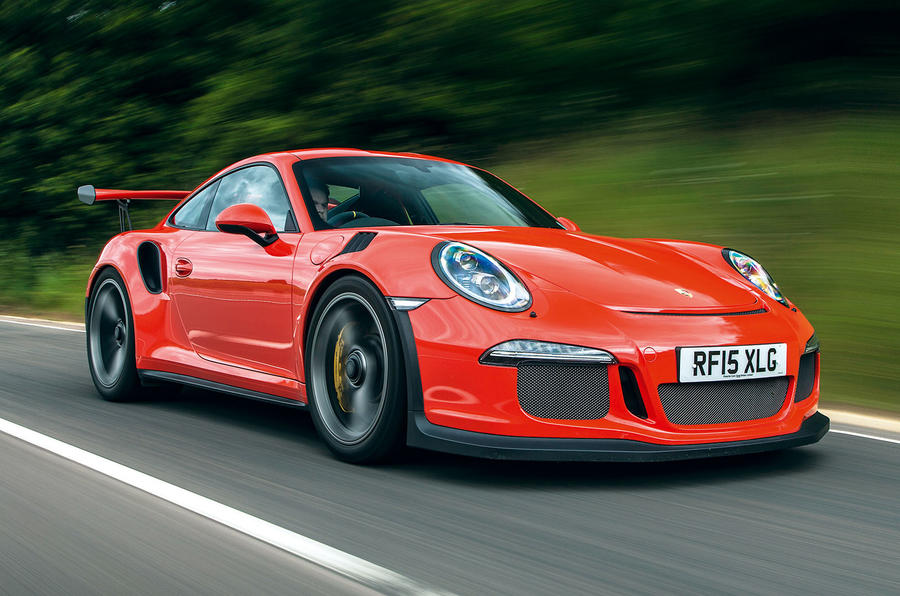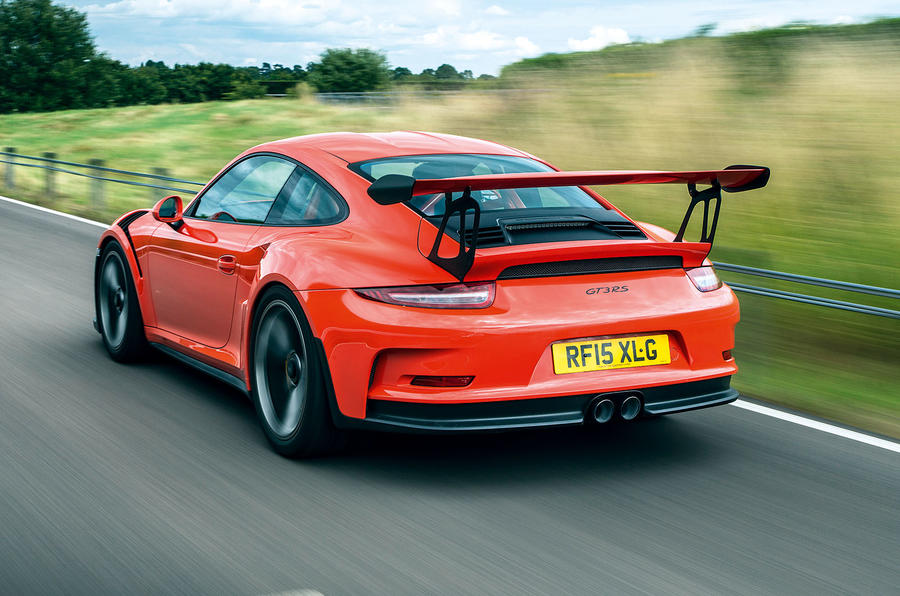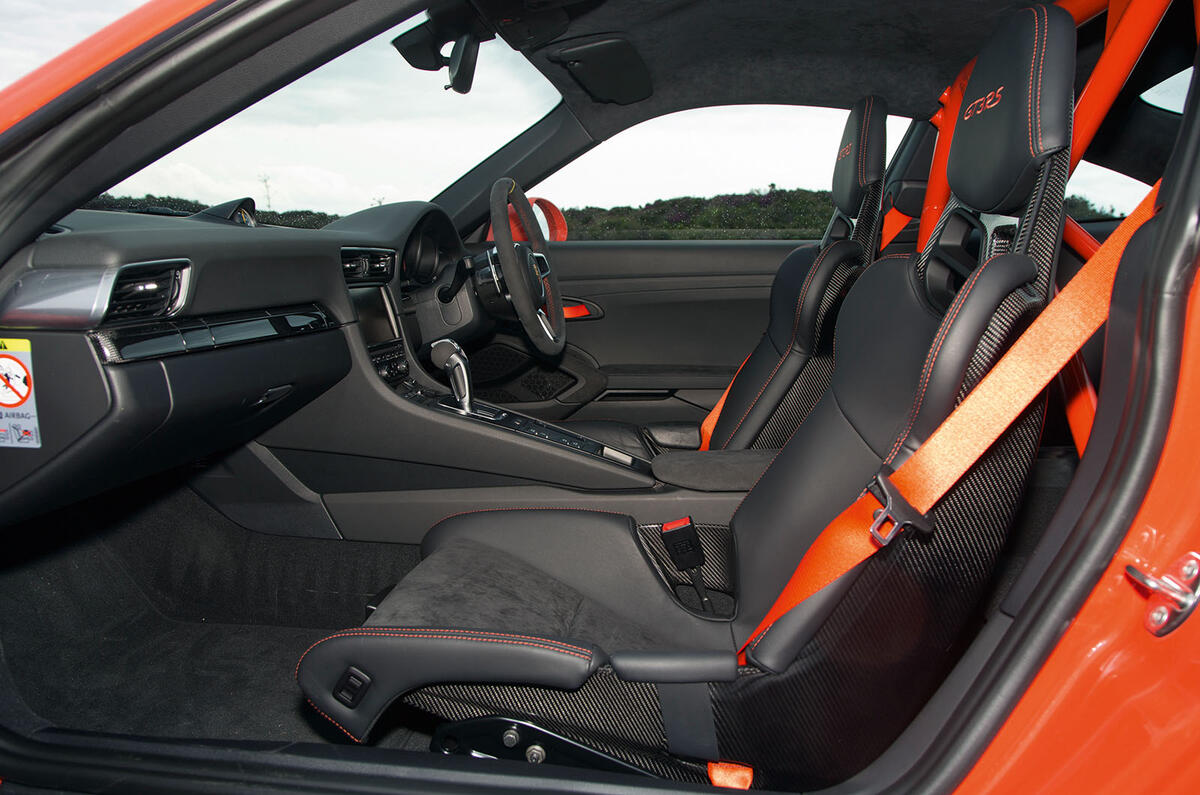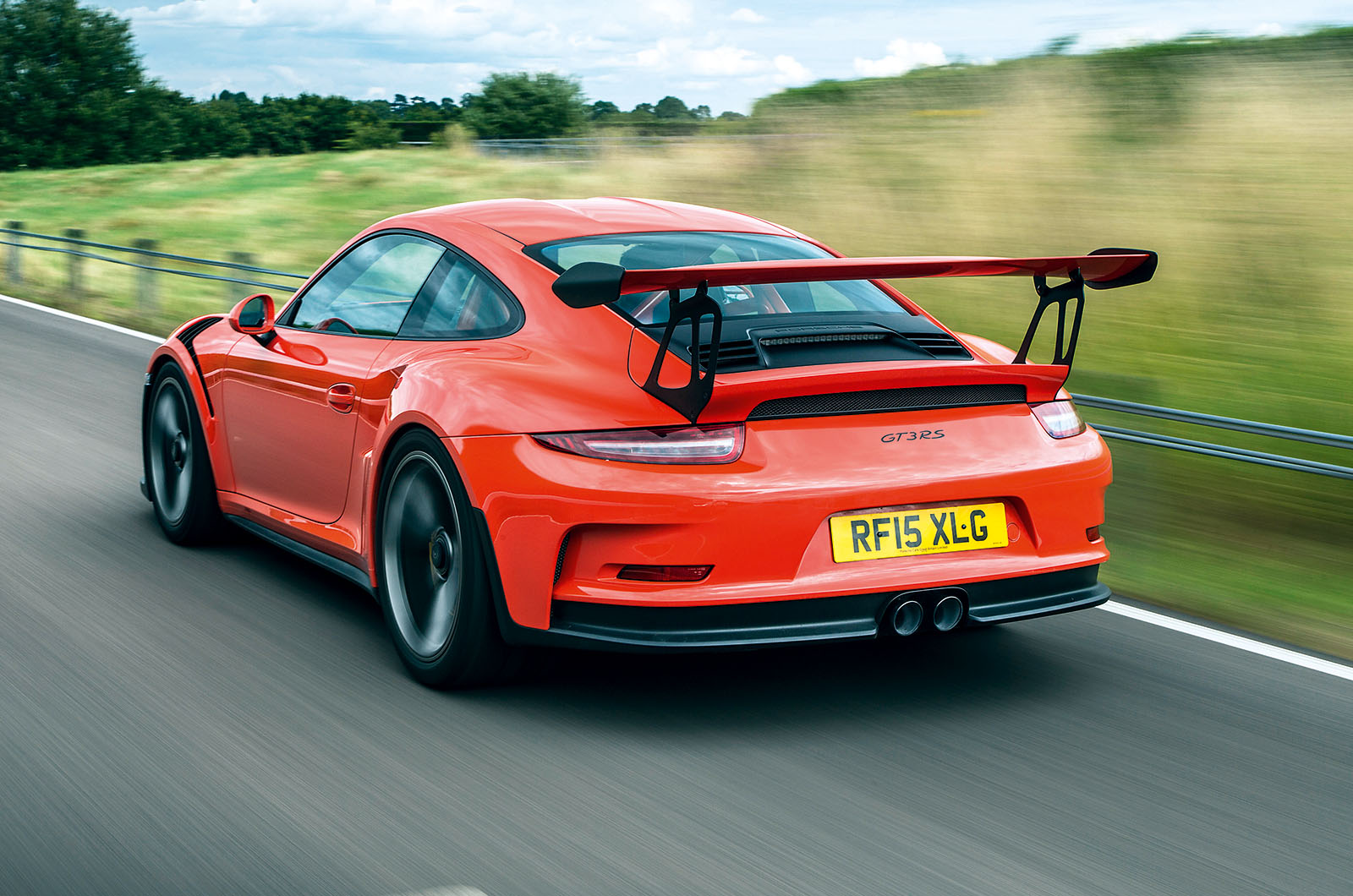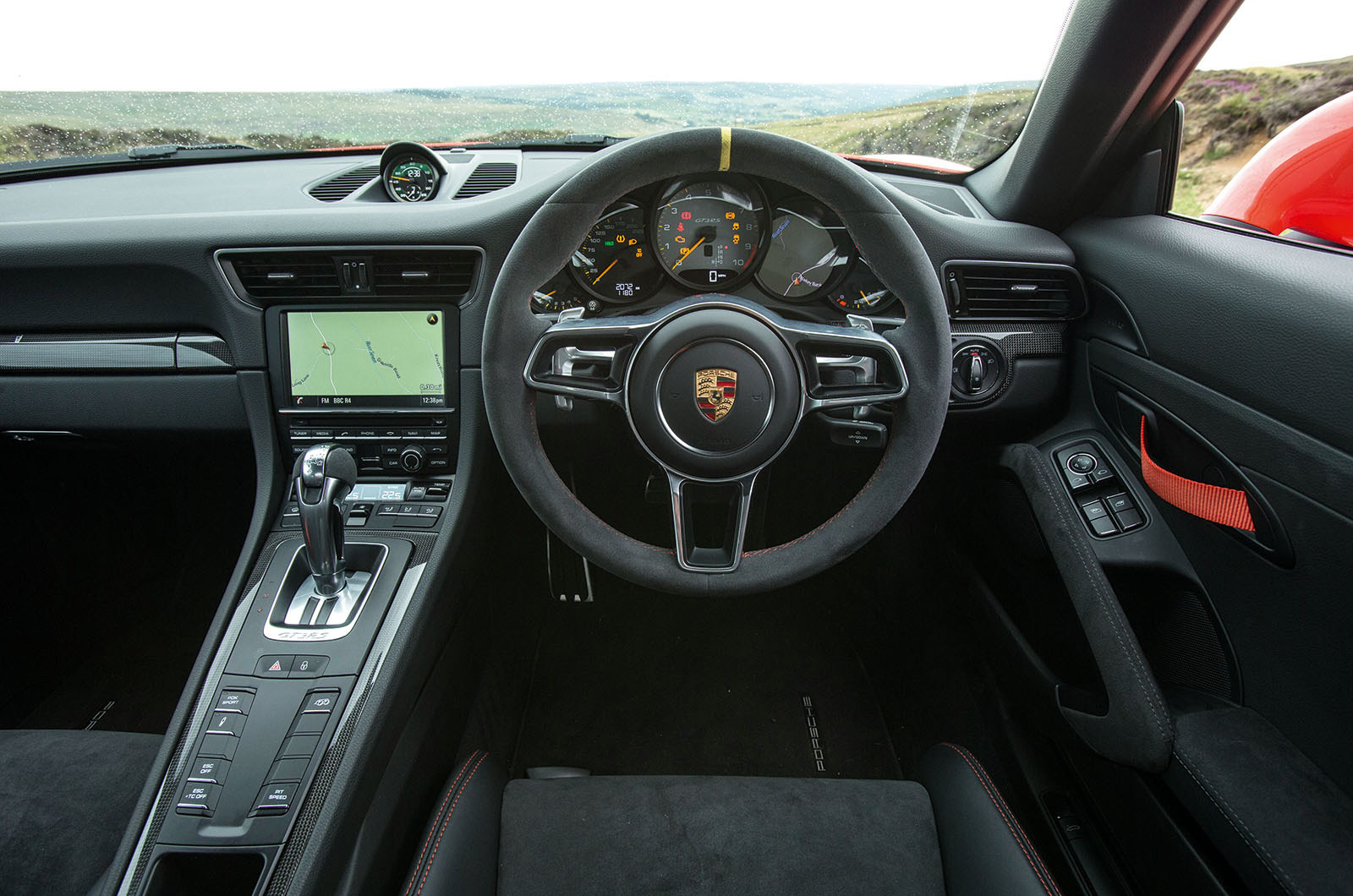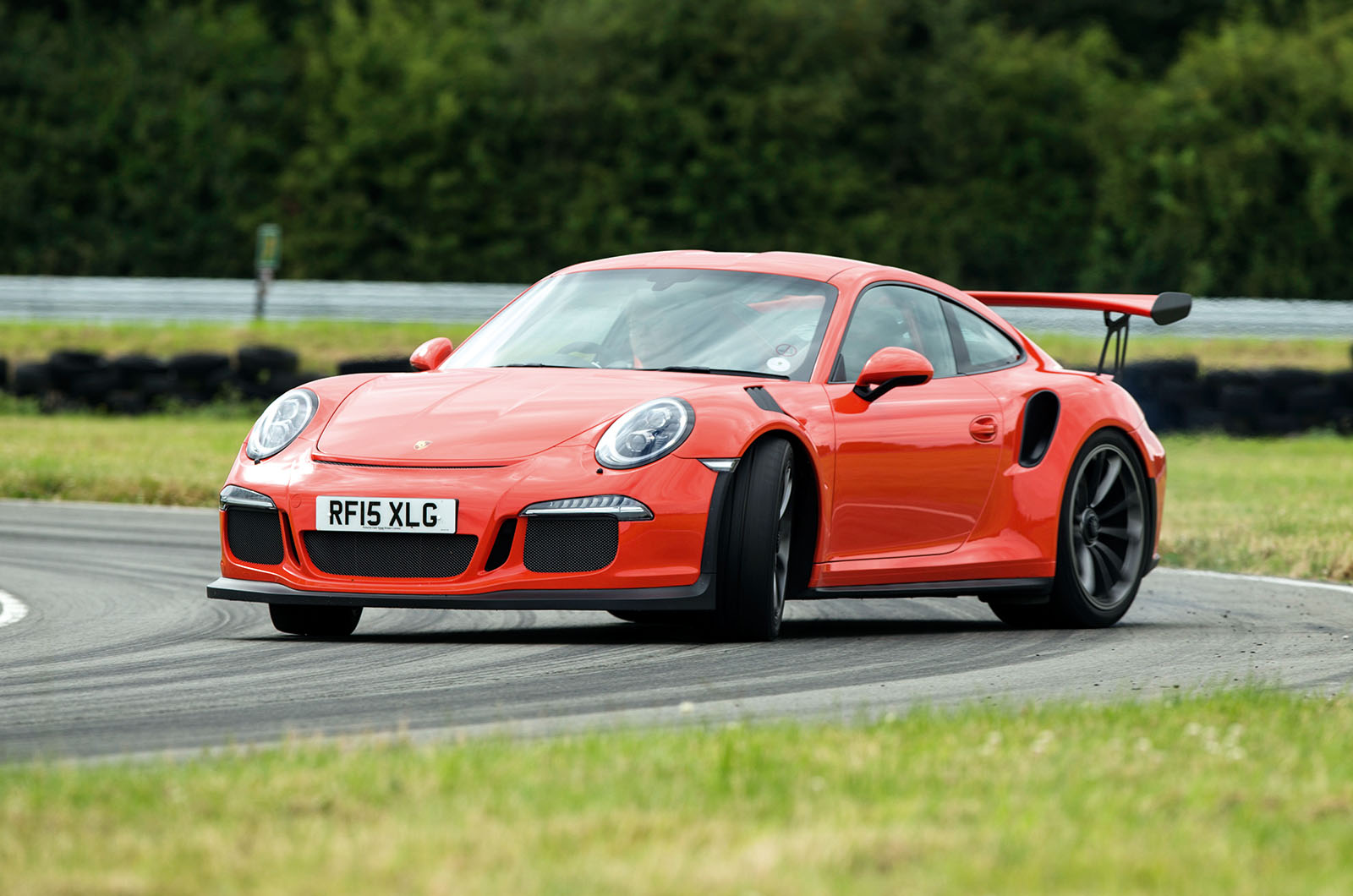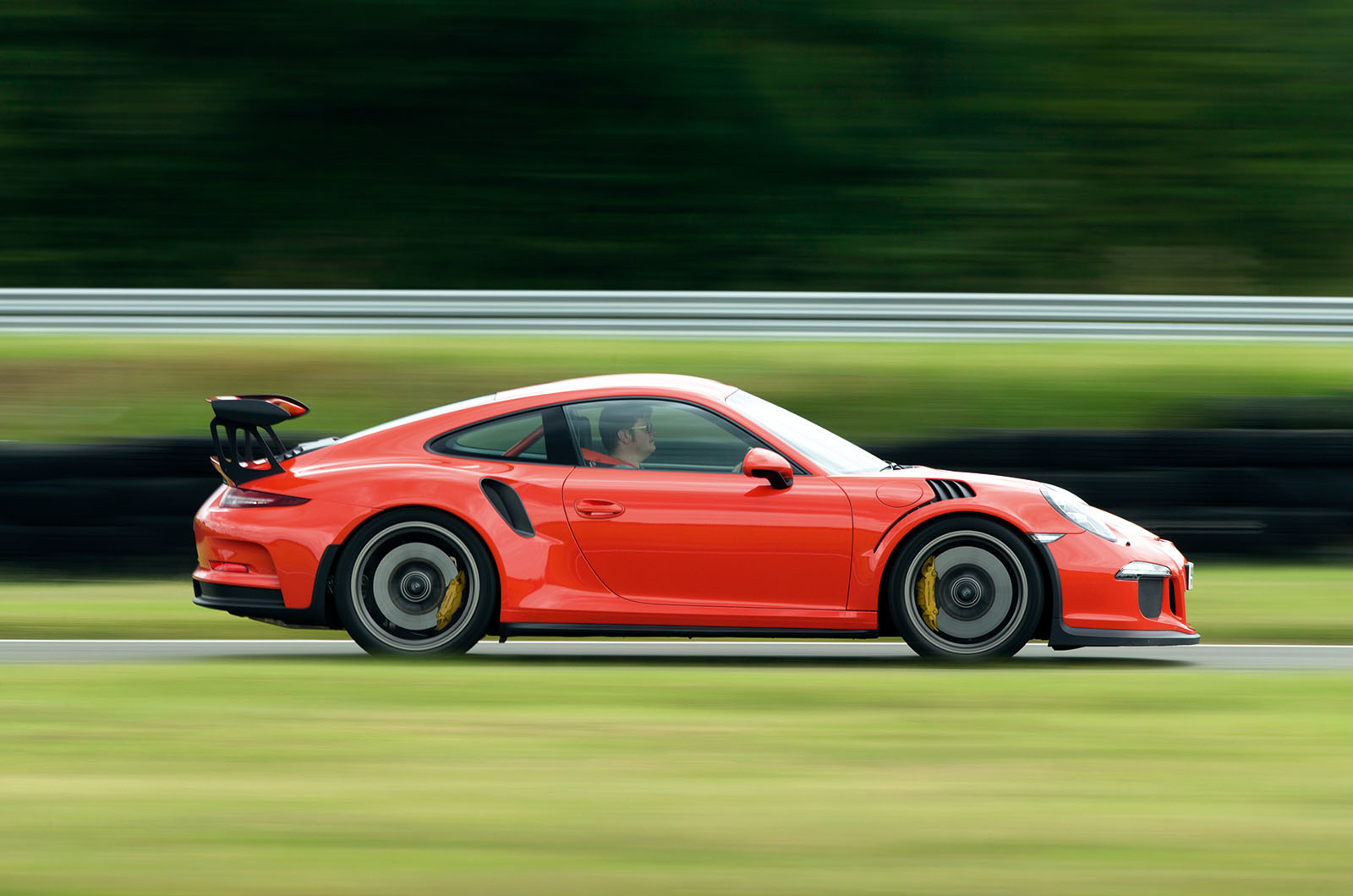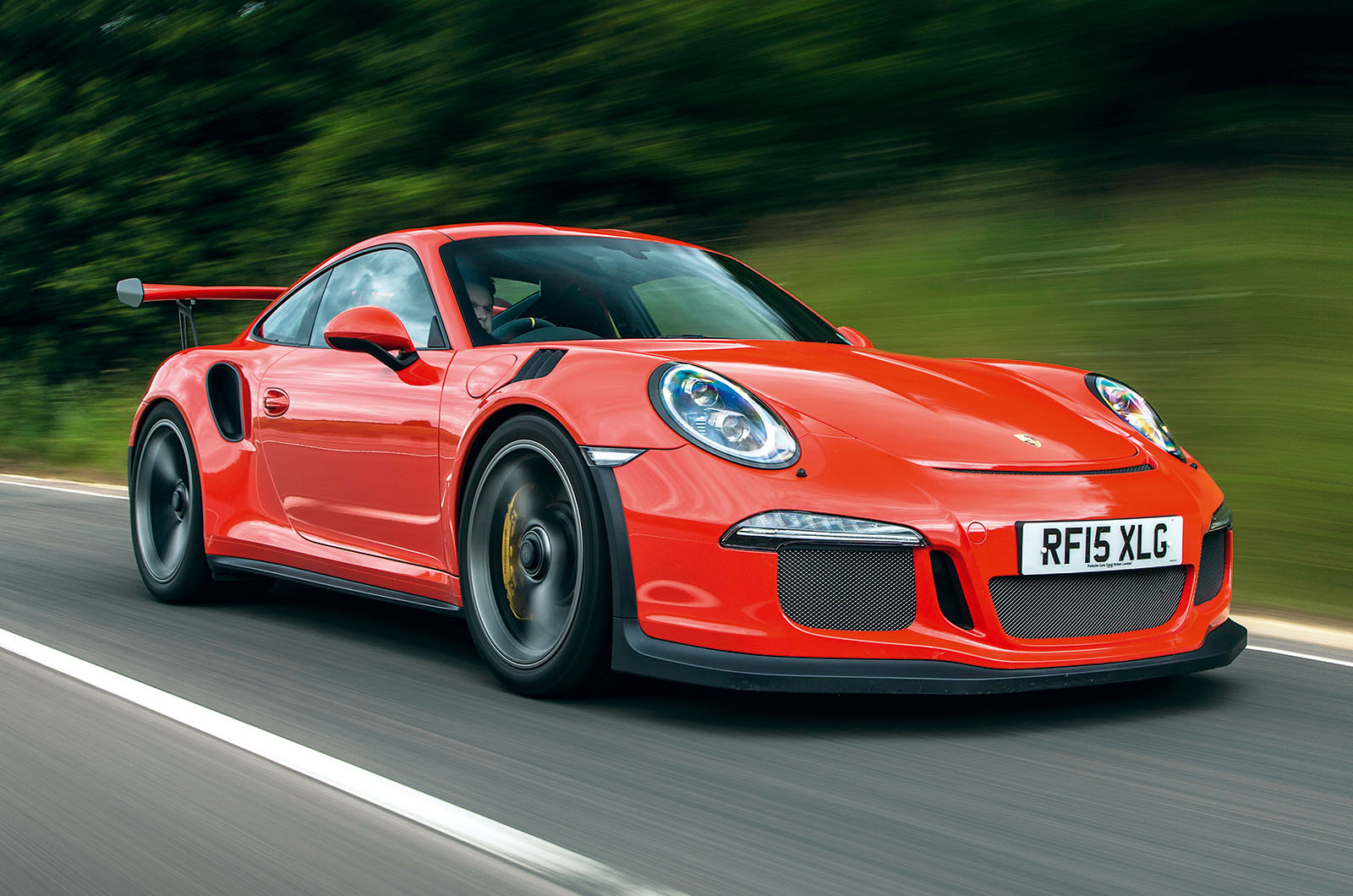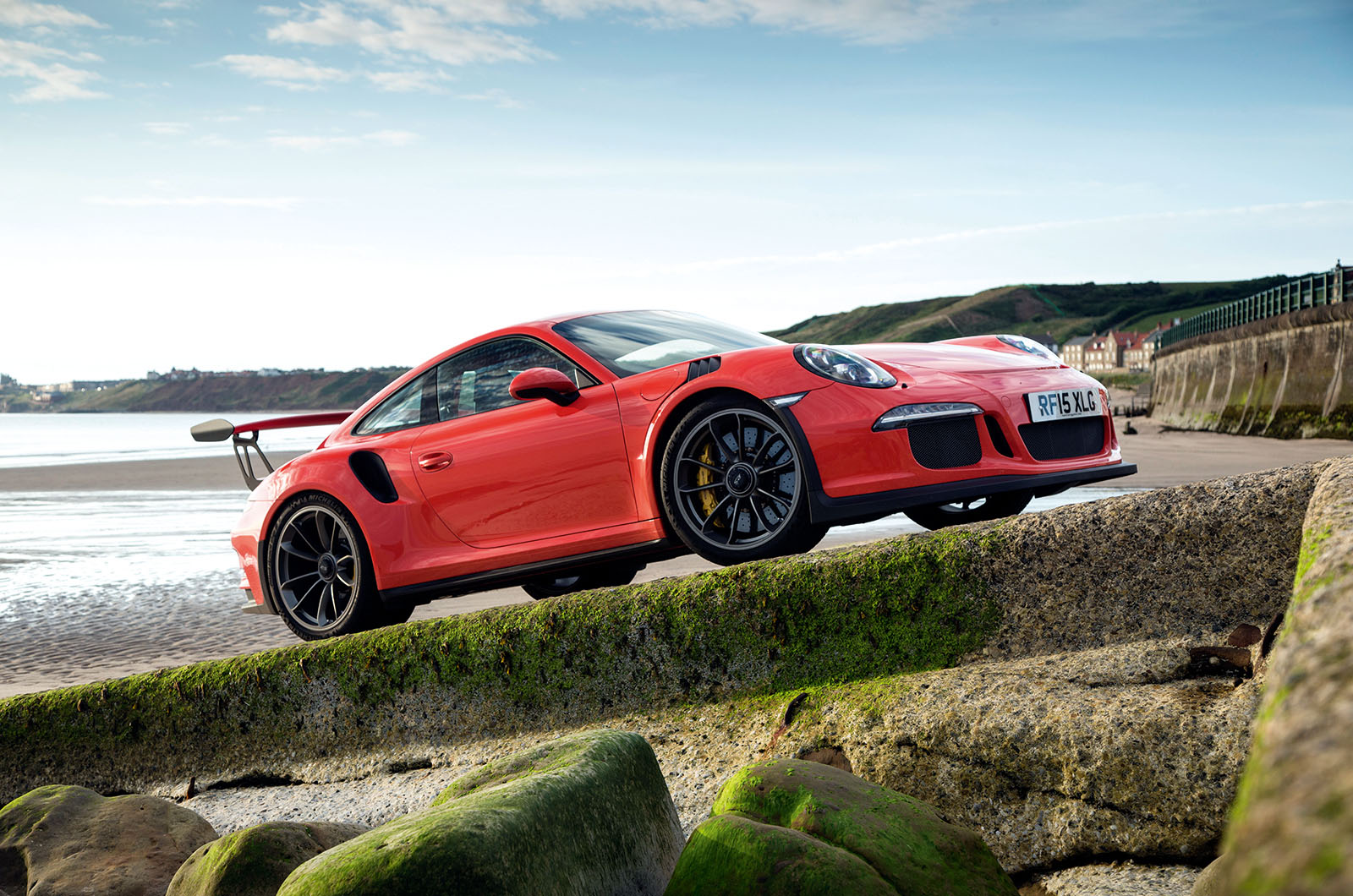Although the RS badge has a longer history, Porsche itself measures the Renn Sport versions of the 911 GT3 from 2003, when it stripped surplus weight from the 996-generation model and had its race-spawned Mezger flat six hyperventilating on ram-air ducts.
It was a suitable starting place for a concept that has since set like folkloric concrete in the imagination of anyone interested in the performance potential of the naturally aspirated Porsche 911. Because the 997 moved through several stages of evolution (including the instant legend that was the much-coveted swansong RS 4.0), Porsche considers the 991 version to be the fifth generation of the model it has launched.
As with its predecessors, the manufacturer considers the car’s circuit-lapping capabilities to be second only to those of the race machines at the opposite end of the homologation process – in this case, the latest GT3 R. The performance disparity between street legal and not, though, ought to be more slender than ever, given all the stops Porsche has evidently pulled from the RS’s development process. We’ll dive into the technical detail in a moment but will preface it with the same takeaway fact that its maker chose to highlight: namely, the car’s four-second improvement over the V10-powered Carrera GT’s lap time around the Nürburgring.
Typically, we’d query the relevance of such a comparison in a road car. Here, though, there’s no question at all that Weissach brews the RS to simmer best on a track, so knowledge of its apparent superiority over a lighter, slipperier, substantially more powerful mid-engined supercar is appropriate theme-setting for considering the extremities of performance Porsche has managed to coax from the humble 911, while only asking £131,296 customers lucky enough to buy one.


